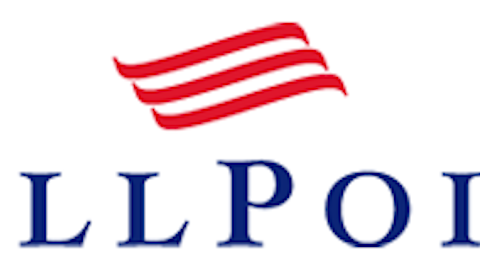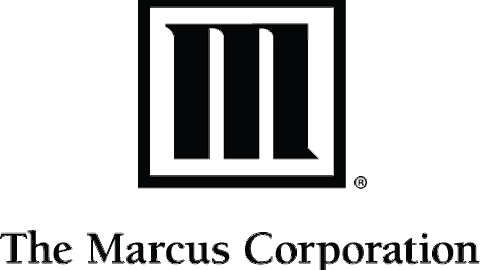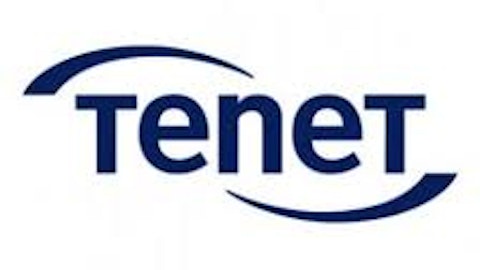There isn’t much that the stock market dislikes more than uncertainty; and there are few pieces of legislation to have worked their way through Congress with more question marks than the Patient Protection and Affordable Care Act, known also as Obamacare.
This health reform bill, which will greatly expand the number of insured individuals in the U.S. while also capping insurers’ profits, is set to go into full effect in just under six months… or so we thought.

Source: White House on Flickr.
A crushing blow to the U.S. labor force
Having just this weekend examined the merits of whether the federal government was ready to handle the technological, staffing, and educational aspects of setting up the complex health insurance data center and leading 34 separate state health exchanges, we received what I consider to be devastating news last night from the White House. According to the Obama administration, it will be announcing later this week a postponement to the health care law requirements (known as the employer mandate) for medium-to-large business for one additional year, until Jan. 1, 2015.
If you recall, as part of Obamacare, businesses with 50 or more employees are required to offer health care options to their full-time employees (defined under the PPACA as working 30 or more hours). Although these businesses aren’t obligated to pay a cent of their employees’ health care premiums, if the costs of their employees’ premiums tops 9.5% of their income, the business is penalized between $2,000 and $3,000 on a per-employee basis.
The prospect of this penalty sent shockwaves throughout the large business sector and prompted job and hour cuts across a number of industries. Regal Entertainment Group (NYSE:RGC), the nation’s largest movie theater operator, slashed weekly hours for thousands of its employees and squarely blamed Obamacare for the cuts. Medical device maker Stryker Corporation (NYSE:SYK) took a slightly different approach but delivered similar end results. Because of the 2.3% medical device excise tax, which will be used to help fund the Medicaid expansion, Stryker Corporation (NYSE:SYK) shed 5% of its workforce in order to save more than $100 million annually.
The decision to give medium-to-large businesses an extra year to prepare was summed up by the Associated Press, which had been in discussion with White House advisor Valerie Jarrett, as: “She [Jarrett] said since enforcing the coverage mandate is dependent on businesses reporting about their workers’ access to insurance, the administration decided to postpone the reporting requirement, and with it, the mandate to provide coverage.”
While the explanation by Jarrett makes sense, the only reward here is for U.S. businesses, which will get another year of potentially full-time employment from their workforce. In return, the U.S. labor force gets another 18 months of uncertainty as to how their employer is going to handle the implementation of Obamacare. Although I noted a study a few months ago that showed only 11% of employers had altered their hiring habits, or planned to cut hours or jobs in anticipation of Obamacare, if any of these employers are big corporations, then we could have a very large problem on our hands.
Not so fast, individual health insurance buyers…
If you’ve been jubilantly cheering the delay up until now and are an individual health insurance purchaser, you may not be nearly as excited to find out that the individual mandate will still go into full effect on Jan. 1, 2014.
A big component to yesterday’s delay announcement has to do with seeing how quickly workers adapt to the new law and sign up for insurance. Admittedly, the penalty for failing to sign up for health insurance for the average worker is going to be pretty low in 2014 (a flat fee of $95 or a percentage of income), but will escalate each year through 2016. There has been talk that individuals may choose to take the penalty since it would be, in some cases, considerably cheaper than purchasing even the least costly health insurance plan on the health exchanges. If a lot of individuals choose to go this route, delaying the employer mandate isn’t going to make much difference to the success of Obamacare.
The other piece of the puzzle I examined over the weekend and relates to whether the government is ready to implement the insurance exchanges in just 90 days. If history serves as any indicator, it’s going to be a glitch-filled and shaky start. It took the Bush administration three full years to prep for the implementation of the Medicaid Modernization Act, with work on that project continuing up to, and after, its launch. Nowadays, with even more riding on the line with regard to cloud-computing technology and needing to simultaneously access numerous branches of the government to determine everything from eligibility to health-plan conformity, the pressure is many times greater.
Is Obamacare’s credibility gone?
Regardless of your personal opinion on the merits of Obamacare, the fact of the matter has been that many of the initial promises of the bill haven’t been adhered to thus far.
In February, the Centers for Medicare and Medicaid Services, or CMS, proposed a 2.2% reimbursement rate decrease to Medicare Advantage health-benefit providers. Though a bit steeper than many had expected, the reduction proposal followed the basic expectation that the government was going to reduce its cash disbursements to for-profit health-care business. However, following two months of some 160 lawmakers and insurers lobbying the CMS, it decided in April to reverse its decision and propose a 3.3% increase to Medicare Advantage reimbursement rates! At the time, it was great news for Humana Inc (NYSE:HUM) and Universal American Corporation (NYSE:UAM), which derive about two-thirds and three-quarters of their revenue from Medicare Advantage plans. But, it set an even greater precedence in the sector that health insurers weren’t going to cede their pricing power to the government.
History practically repeated itself just a few weeks later when the CMS reversed its decision yet again on reimbursement rates, this time for acute-care hospital providers like HCA Holdings Inc (NYSE:HCA) and Tenet Healthcare Corp (NYSE:THC). Unlike with Medicare Advantage providers, there wasn’t any lobbying involved, just a mere reversal of opinion to raise reimbursement rates for acute-care providers by 0.8% and 1.1% for outpatient acute-care providers. The initial assessment by the CMS had called for a drop of around 1% in reimbursement rates.
Then came yesterday’s decision to back down from the employer mandate deadline and push it back one year, which multiple news outlets have referred to as more politically motivated than anything else with elections coming up in mid-2014.
One big benefit and a potentially huge problem
There is a chance this move could have benefits to the insurance sector and health-benefit providers like WellPoint, Inc. (NYSE:WLP) in that it gives businesses an extra year to figure out how to operate with a part-time labor force and exempt themselves from the penalties that could be associated with needing to offer health insurance and subsidizing their employees. If medium-to-large businesses choose to reduce hours, it could cause employees in increasing number to seek out insurance plans on the state-run exchanges, ultimately validating the effectiveness of Obamacare and making WellPoint, Inc. (NYSE:WLP) — which purchased AMERIGROUP last year to expand its individual market Medicaid-based member group — look like a genius.
Conversely, separating the effective dates of the individual and employer mandates makes a difficult bill to understand even more complex. More so than that, it could potentially reduce confidence in a bill that registered its second-lowest favorable rating since it was passed, according to the Kaiser Family Foundation’s latest tracking poll. If approval ratings for Obamacare continue to wane, individuals may simply opt to take the penalty rather than sign up for health care, adversely impacting insurers like WellPoint.
The one thing I can tell you is that I’m very eager to see what the next approval rating for Obamacare is according to the Kaiser Family Foundation.
The article Is This News a Crushing Blow to Obamacare’s Credibility? originally appeared on Fool.com and is written by Sean Williams.
Fool contributor Sean Williams has no material interest in any companies mentioned in this article. You can follow him on CAPS under the screen name TMFUltraLong, track every pick he makes under the screen name TrackUltraLong, and check him out on Twitter, where he goes by the handle @TMFUltraLong. The Motley Fool owns shares of, and recommends, WellPoint.
Copyright © 1995 – 2013 The Motley Fool, LLC. All rights reserved. The Motley Fool has a disclosure policy.






